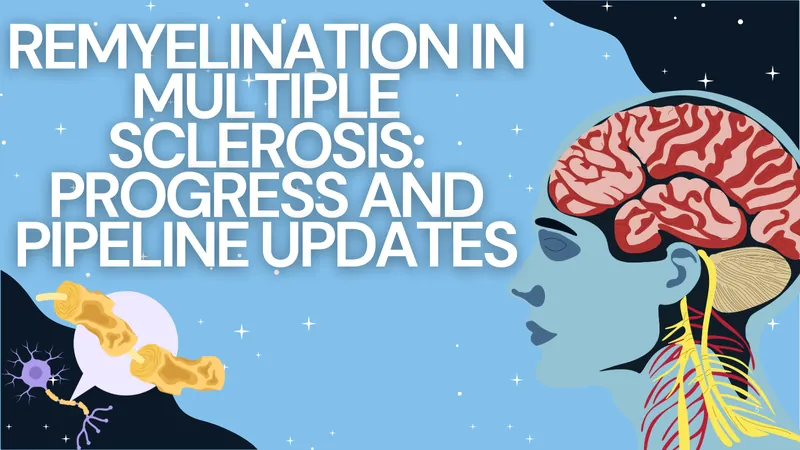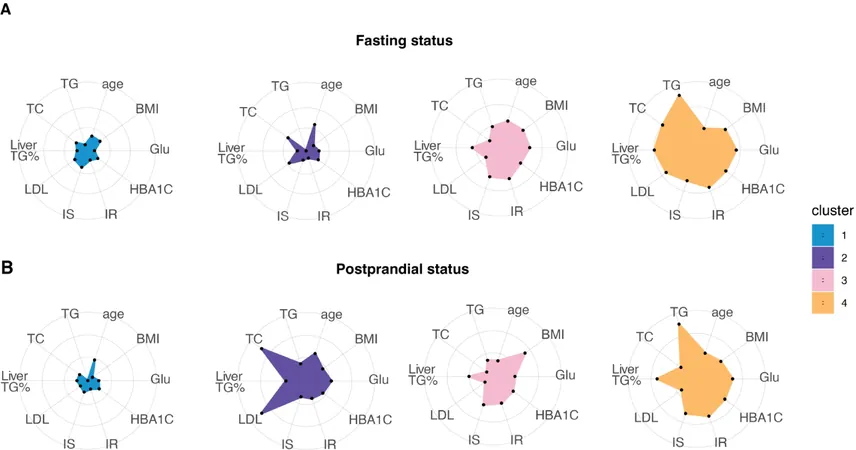
Breaking Ground in Multiple Sclerosis Remyelination Research: Must-Know Drug Pipeline Updates!
2025-05-29
Author: Nur
The Quest for Remyelination in MS: An Unsolved Mystery
For years, research on remyelination in multiple sclerosis (MS) has captivated scientists and healthcare professionals alike. While existing MS treatments excel at minimizing relapses, the gold standard for directly promoting remyelination—the regrowth of the protective myelin sheath around nerve fibers—remains elusive, with no approved therapies currently available.
Yet, the pursuit of innovative therapies is on the rise, thanks to exciting advancements in research. Investigations into mesenchymal stem cells, oligodendrocyte precursor cells (OPCs), and cutting-edge gene therapies like CRISPR/Cas9 are paving the way for potential breakthroughs. As scientists explore new neuroprotective agents and biomarkers, the race for effective remyelination strategies speeds up!
Current Clinical Trials: The Frontline of Remyelination Advances
Let’s dive into the promising drugs currently under investigation that could redefine the treatment landscape for MS.
PIPE-307 (Contineum) – Phase 2 Trials Underway
PIPE-307, an oral M1 muscarinic receptor antagonist, is undergoing tests in a Phase 2 trial involving 168 patients with relapsing-remitting MS. This trial aims to not only assess safety but also gauge improvements in vision and brain MRI results, making it a critical step in understanding how M1 receptors influence oligodendrocyte maturation.
PTD802 (Pheno Therapeutics) – A Fresh Face in Phase 1 Trials
This selective GPR17 antagonist has just earned regulatory greenlight in the UK for its Phase 1 study. The receptor is crucial for the maturation of OPCs into myelin-producing cells. By blocking GPR17, PTD802 could facilitate remyelination, ultimately offering hope for MS patients stuck in a cycle of nerve damage.
FTX-101 (Find Therapeutics) – Pioneering First-in-Class Approach
FTX-101 is a groundbreaking peptide targeting the NRP1 receptor complex, which regulates OPC behavior. The initial Phase 1 studies are exciting, as they seek to lay the groundwork for eventual use in chronic optic neuropathy due to demyelination. Could this be the new weapon in the fight against MS?
Preclinical Innovations: CVL-1001 & CVL-2001 – Promising Developments Ahead!
Convelo Therapeutics is working on two innovative remyelinating agents—CVL-1001 and CVL-2001. Targeting specific cholesterol biosynthesis enzymes, these drugs may revitalize damaged pathways in the central nervous system and restore remyelination capabilities. An IND application is expected soon, unlocking the potential for human trials!
Remembering Previous Attempts: Lessons from Setbacks
Not every innovative treatment has hit the mark. Drugs like Opicinumab and Clemastine fumarate have faced hurdles in clinical trials. Despite a compelling premise, Opicinumab's effectiveness proved inadequate, leading to its eventual withdrawal in 2020. Nonetheless, such attempts have enriched the knowledge base for future therapies.
Looking Ahead: A New Era of Hope for MS Patients!
As the field of remyelination research evolves, the prospects for groundbreaking therapies seem brighter than ever. With a slew of promising candidates in the pipeline and continuing advancements in understanding MS biology, patients and clinicians alike have much to watch for. Stay tuned for the next big news in MS treatment!




 Brasil (PT)
Brasil (PT)
 Canada (EN)
Canada (EN)
 Chile (ES)
Chile (ES)
 Česko (CS)
Česko (CS)
 대한민국 (KO)
대한민국 (KO)
 España (ES)
España (ES)
 France (FR)
France (FR)
 Hong Kong (EN)
Hong Kong (EN)
 Italia (IT)
Italia (IT)
 日本 (JA)
日本 (JA)
 Magyarország (HU)
Magyarország (HU)
 Norge (NO)
Norge (NO)
 Polska (PL)
Polska (PL)
 Schweiz (DE)
Schweiz (DE)
 Singapore (EN)
Singapore (EN)
 Sverige (SV)
Sverige (SV)
 Suomi (FI)
Suomi (FI)
 Türkiye (TR)
Türkiye (TR)
 الإمارات العربية المتحدة (AR)
الإمارات العربية المتحدة (AR)